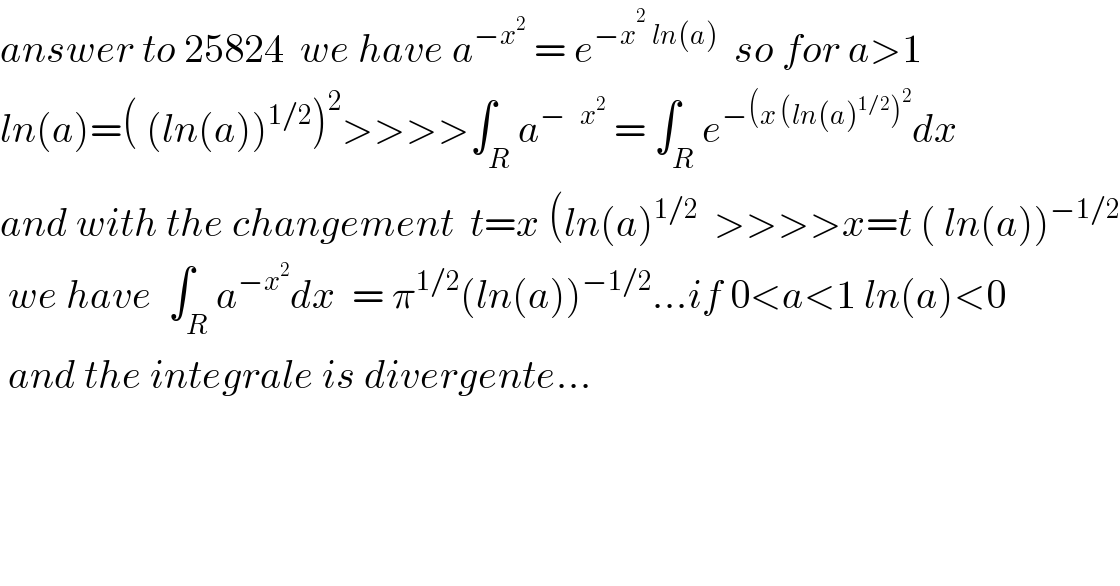
Question Number 25932 by abdo imad last updated on 16/Dec/17

$${answer}\:{to}\:\mathrm{25824}\:\:{we}\:{have}\:{a}^{−{x}^{\mathrm{2}} } \:=\:{e}^{−{x}^{\mathrm{2}_{} } {ln}\left({a}\right)} \:\:{so}\:{for}\:{a}>\mathrm{1} \\ $$ $${ln}\left({a}\right)=\left(\:\left({ln}\left({a}\right)\right)^{\mathrm{1}/\mathrm{2}} \right)^{\mathrm{2}} >>>>\int_{{R}} {a}^{−^{} {x}^{\mathrm{2}} } \:=\:\int_{{R}} {e}^{−\left({x}\:\left({ln}\left({a}\right)^{\mathrm{1}/\mathrm{2}} \right)^{\mathrm{2}} \right.} {dx} \\ $$ $${and}\:{with}\:{the}\:{changement}\:\:{t}={x}\:\left({ln}\left({a}\right)^{\mathrm{1}/\mathrm{2}} \:\:>>>>{x}={t}\:\left(\:{ln}\left({a}\right)\right)^{−\mathrm{1}/\mathrm{2}} \right. \\ $$ $$\:{we}\:{have}\:\:\int_{{R}} {a}^{−{x}^{\mathrm{2}} } {dx}\:\:=\:\pi^{\mathrm{1}/\mathrm{2}} \left({ln}\left({a}\right)\right)^{−\mathrm{1}/\mathrm{2}} ...{if}\:\mathrm{0}<{a}<\mathrm{1}\:{ln}\left({a}\right)<\mathrm{0} \\ $$ $$\:{and}\:{the}\:{integrale}\:{is}\:{divergente}... \\ $$
